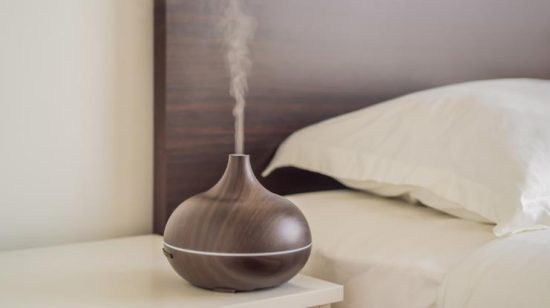Bronchitis is a common respiratory condition characterized by inflammation of the bronchial tubes, which carry air to and from the lungs. It can be caused by viral or bacterial infections, allergies, or irritants such as smoke or pollution. While bronchitis often clears up on its own with rest and hydration, several home remedies can help alleviate symptoms and promote recovery. In this blog, we’ll explore ten effective Bronchitis home remedies, along with answers to frequently asked questions to help you manage this respiratory condition at home.
Causes of Bronchitis
Bronchitis, characterized by inflammation of the bronchial tubes, can be caused by various factors, including:
1. Viral Infections
Viral infections, particularly those caused by the influenza virus or respiratory syncytial virus (RSV), are common causes of acute bronchitis. These viruses can infect the bronchial tubes, leading to inflammation and irritation, which manifests as coughing and other symptoms of bronchitis.
2. Bacterial Infections
While less common than viral infections, bacterial infections can also cause bronchitis. Bacteria such as Streptococcus pneumoniae, Haemophilus influenzae, and Moraxella catarrhalis can infect the bronchial tubes, leading to acute or chronic bronchitis. Bacterial bronchitis may require antibiotic treatment to resolve the infection.
3. Environmental Irritants
Exposure to environmental irritants such as smoke, pollution, dust, or chemical fumes can irritate the bronchial tubes and trigger inflammation. Long-term exposure to these irritants can increase the risk of developing chronic bronchitis, particularly in individuals with pre-existing respiratory conditions.
4. Allergies

Allergies to airborne substances such as pollen, pet dander, mold, or dust mites can trigger allergic reactions in the respiratory system, leading to bronchial inflammation and symptoms of bronchitis. Allergic bronchitis may occur seasonally or year-round, depending on the allergen exposure.
5. Smoking
Tobacco smoke contains numerous toxic chemicals that can damage the respiratory tract and impair the function of the cilia, the hair-like structures that help remove mucus and debris from the airways. Chronic smoking is a significant risk factor for developing chronic bronchitis, often referred to as smoker’s cough.
6. Chronic Obstructive Pulmonary Disease (COPD)
Chronic bronchitis is a key component of chronic obstructive pulmonary disease (COPD), a progressive lung disease characterized by airflow limitation. Individuals with COPD often experience chronic inflammation of the bronchial tubes, leading to symptoms such as coughing, wheezing, and shortness of breath.
7. Weakened Immune System
A weakened immune system due to factors such as HIV/AIDS, chemotherapy, or immunosuppressive medications can increase susceptibility to respiratory infections, including bronchitis. Individuals with compromised immune function may be more prone to developing severe or recurrent cases of bronchitis.
8. Gastroesophageal Reflux Disease (GERD)
Gastroesophageal reflux disease (GERD) occurs when stomach acid flows back into the esophagus, leading to symptoms such as heartburn and regurgitation. In some cases, refluxed stomach acid can reach the lungs and irritate the bronchial tubes, triggering bronchitis symptoms.
9. Occupational Exposures
Exposure to certain occupational hazards such as chemical vapors, gases, or airborne particles can increase the risk of developing occupational bronchitis. Workers in industries such as mining, construction, agriculture, and manufacturing may be at higher risk of bronchitis due to workplace exposures.
10. Genetic Factors
Some individuals may have a genetic predisposition to respiratory conditions such as bronchitis. Genetic factors can influence the development and severity of bronchitis, particularly in individuals with a family history of respiratory disorders. Genetic testing and counseling may be beneficial for individuals with a strong family history of bronchitis or related conditions.
Symptoms of bronchitis
The most common Symptoms of bronchitis may include:
1. Cough
The hallmark symptom of bronchitis is a persistent cough that may produce clear, white, yellow, or green mucus. The cough is often dry and hacking in the early stages but may become productive as the condition progresses. Coughing is the body’s natural response to remove irritants and excess mucus from the airways.
2. Shortness of Breath
Bronchitis can cause difficulty breathing or shortness of breath, especially during physical exertion or activities that require increased respiratory effort. In severe cases, individuals may experience wheezing or a feeling of tightness in the chest, which can further impair breathing.
3. Chest Discomfort

Some people with bronchitis may experience chest discomfort or tightness, often described as a dull ache or pressure in the chest area. Chest discomfort may worsen with coughing or deep breathing and can contribute to feelings of breathlessness.
4. Fatigue
Bronchitis can cause significant fatigue and lethargy, making it difficult for individuals to engage in their usual daily activities. Fatigue may result from the body’s efforts to fight off the infection or inflammation in the airways, as well as disrupted sleep due to coughing or respiratory symptoms.
5. Sore Throat
In acute bronchitis, individuals may experience a sore or scratchy throat, particularly if the infection also affects the upper respiratory tract. Sore throat symptoms may accompany other respiratory symptoms such as coughing, nasal congestion, and postnasal drip.
6. Fever
Fever is a common symptom of acute bronchitis, especially if the condition is caused by a bacterial infection. Fever typically indicates that the body is mounting an immune response to the underlying infection, although not all cases of bronchitis will cause fever.
7. Nasal Congestion
Bronchitis may be associated with nasal congestion or a runny nose, particularly if the infection spreads to the nasal passages or sinuses. Nasal congestion can contribute to difficulty breathing and may exacerbate coughing and other respiratory symptoms.
8. Mucus Production
Increased mucus production is a hallmark feature of bronchitis, with the mucus often appearing thick, discolored, or cloudy. The presence of excess mucus in the airways can trigger coughing and may lead to symptoms such as chest congestion or postnasal drip.
9. General Malaise
Individuals with bronchitis may experience a general sense of malaise or feeling unwell, accompanied by symptoms such as body aches, chills, and loss of appetite. General malaise is common during acute respiratory infections and may persist until the underlying infection resolves.
Home Remedies for Bronchitis
Now, let’s look into ten effective home remedies to treat Bronchitis.
1. Steam Inhalation

Breathing in the steam frees the mucus up by a process of loosening and enables the airway to get decongested and become free. Turn the pot of water on the fire, turn off the water, and cover your head with a cloth to create a tent. Keep over the pan and the steam, and you breathe for 5-10 minutes inhalation, and each breathing of the air.
2. Honey and Lemon
Honey has natural antibacterial properties, while lemon provides vitamin C to boost the immune system. Mix a tablespoon of honey with fresh lemon juice in a cup of warm water and drink it several times a day to soothe a sore throat and reduce coughing.
3. Ginger Tea
Ginger by having anti-inflammatory properties can help to reduce inflammation in the airways and subsequently ease coughing. Skip brewing dry ginger mix in hot water to make ginger tea and drink it little by little throughout the day for the alleviation of bronchitis symptoms.
4. Eucalyptus Oil
Eucalyptus oil is known to be rich in a chemical compound, cineole, that has mucolytic characteristics, which helps in the breakdown of mucus and, thereby, eases breathability. Inhale a few eucalyptus oil drops as you take steam from a warm water bowl or dilute it with carrier oil and apply it to the forehead and throat to get relief.
5. Warm Saltwater Gargle

Gargling with warm salt water can provide relief for a sore throat and reduce the swelling of the airways. To do that, just follow these tips below. Dissolve half a teaspoon of salt in a glass of warm water and mouth gargle for at least 30 seconds before spitting out the solution.
6. Turmeric Milk
Curcumin, which is composed of turmeric, is a compound that has anti-inflammatory and antioxidant properties that help check inflammation while at the same time improving the immune system. Take a spoonful of turmeric powder, mix it with a cup of warm milk, and drink it at night to help relax and cope with the symptoms of bronchitis.
7. Marshmallow Root
Swallowwort root generates demulsifying properties, which may allow for treating throat and chest irritation. Wet marshmallow root tea is steeped in hot water and taken regularly to reduce coughing and promote the process of healing.
8. Peppermint Oil Chest Rub
The presence of menthol, an active ingredient in peppermint oil, makes it work better in decongestion and opening up the airways. Mix the mentholated oil with a carrier oil, for instance, coconut oil or olive oil, and massage it on the chest and the throat to alleviate the symptoms of the bronchitis ailment.
9. Humidifier

By introducing a humidifier into your home it can be very beneficial in increasing the moisture in the environment and help ease breathing. Wash your whole humidifier often and use distilled water to stop the tree of mold and bacteria, especially if you’re suffering from an allergy or asthma.
10. Rest and Hydration
Resting and staying hydrated are essential components of bronchitis treatment. Drink a lot of water, herbal teas, and broth fluids daily to maintain the moistening of the respiratory tract and the loosening of the phlegm. Keep a cold area to help the body repair itself from infection.
Conclusion
Bronchitis can be a challenging respiratory condition to deal with, but with the right home remedies and self-care techniques, you can alleviate symptoms and promote healing. By incorporating natural remedies such as steam inhalation, honey and lemon, ginger tea, and essential oils into your bronchitis treatment routine, you can soothe inflammation, ease congestion, and support your body’s healing process. Remember to consult with a healthcare professional if you have any concerns or if your symptoms persist or worsen despite home treatment efforts. With patience and proper care, you can breathe easier and recover from bronchitis in no time.
FAQs on effective home remedies for Bronchitis
1. Is bronchitis contagious?
Acute bronchitis caused by viral infections, such as the common cold or flu, can be contagious and spread through respiratory droplets. However, chronic bronchitis caused by smoking or long-term exposure to irritants is not contagious.
2. When should I see a doctor for bronchitis?
But you should undergo an examination urgently by a doctor if the issue is getting worse, or you are experiencing breathing problems, chest pain, high fever, or coughing up blood. Moreover, raise your hand if you are experiencing already known diseases such as asthma and COPD or something like that and see your health care provider immediately.
3. Can I prevent bronchitis?
While it’s not always possible to prevent bronchitis, you can reduce your risk by practicing good hygiene, avoiding exposure to irritants such as smoke and pollution, and maintaining a healthy lifestyle with regular exercise and a balanced diet.
4. How long does bronchitis last?
While acute bronchitis lasts for one to three weeks, chronic bronchitis may last a longer period, up to months and years, mainly affecting patients with other chronic diseases. The recovery period can be quite different in terms of the severity of the patient’s case, as well as under the influence of characteristics such as age and general well-being.
5. Can I treat bronchitis at home?
Mild cases of bronchitis can often be treated at home with rest, hydration, and home remedies such as steam inhalation, herbal teas, and throat lozenges. However, if symptoms persist or worsen, it’s essential to seek medical attention for a proper diagnosis and treatment.

